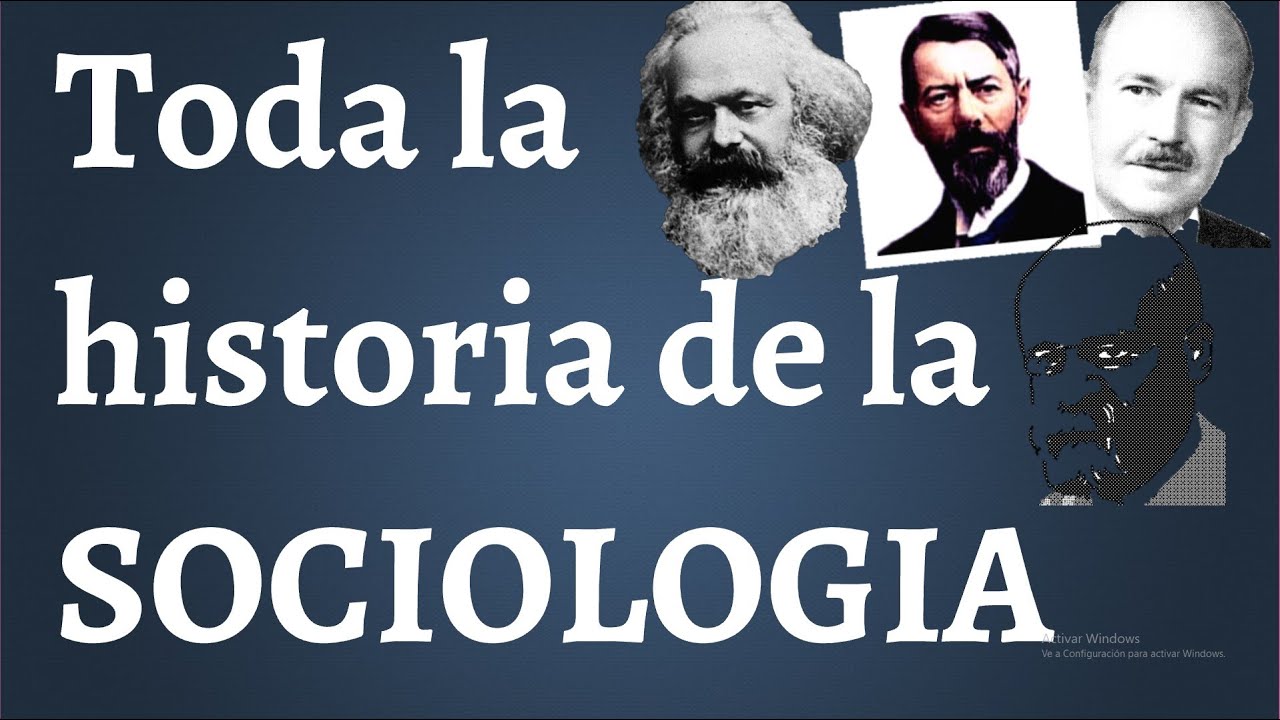DURKHEIM, WEBER E MARX.
Summary
TLDRIn this video, the host compares the theories of Émile Durkheim and Karl Marx, two iconic 19th and 20th-century thinkers. Durkheim views society through the lens of natural order and impartial study, particularly using the example of suicide as a 'social fact.' Marx, in contrast, emphasizes that society is shaped by human actions and class struggles, introducing the concept of social actions and advocating for a revolutionary change to end capitalism’s inequalities. The video provides a concise overview of their theories and highlights key philosophical differences between the two thinkers.
Takeaways
- 😀 Émile Durkheim viewed social facts as things that should be studied impartially, like natural sciences, to avoid bias in understanding society.
- 😀 Durkheim's theory suggests that human beings are not the creators of society but instead follow a pre-existing natural order of things.
- 😀 Durkheim identified three forms of suicide: egoistic suicide (resulting from isolation), altruistic suicide (committed for the benefit of society), and anomic suicide (linked to social crisis).
- 😀 Max Weber, a key philosopher of the 19th-20th century, believed in subjective study, asserting that personal desires and biases influence how society should be studied.
- 😀 Weber argued that social actions, such as affective, traditional, goal-oriented, and value-rational actions, shape societal dynamics and human behavior.
- 😀 In his work *The Protestant Ethic and the Spirit of Capitalism*, Weber argued that Protestant ethics, especially Calvinism, contributed to the development of capitalism, particularly through the accumulation of wealth.
- 😀 Karl Marx's historical materialism centers on the relationship between employers and employees, arguing that capitalist society is driven by contradictory forces.
- 😀 Marx believed that workers, who sell their labor, receive minimal profits, while the majority of wealth is retained by employers, creating an inherent class struggle.
- 😀 Marx advocated for a revolution where workers seize the means of production, aiming to overthrow capitalism and eliminate social inequality.
- 😀 One of Marx's famous quotes emphasized that philosophers have historically interpreted the world, but what truly matters is transforming it to create a more just society.
Q & A
What is the main focus of Émile Durkheim's theory regarding social facts?
-Émile Durkheim's theory states that social facts should be studied as 'things,' meaning they should be observed impartially, similar to how natural sciences study objects. This approach helps avoid bias and allows for a more objective understanding of society.
How does Durkheim explain suicide as a social fact?
-Durkheim categorizes suicide into three types: egoistic, altruistic, and anomic. Egoistic suicide occurs when individuals feel disconnected from society, altruistic suicide happens when people sacrifice themselves for the greater good of society, and anomic suicide happens during societal crises when social norms break down.
What is the core difference between Durkheim and Marx's approaches to studying society?
-Durkheim emphasizes studying society as a natural phenomenon through objective, scientific methods, while Marx argues that society should be studied with a focus on human agency and personal biases, as he believes humans actively shape and modify their societies.
What is the role of social actions in Marx's theory?
-Marx identifies four types of social actions: affective (based on emotions), traditional (based on customs), goal-oriented (focused on specific objectives), and value-oriented (involving ethical or political values). These actions reflect the active role of individuals in shaping society.
How does Marx explain the relationship between capitalism and religion in 'The Protestant Ethic and the Spirit of Capitalism'?
-Marx, through Max Weber, argues that the rise of capitalism was influenced by Protestant ethics, particularly Calvinism, which promoted the accumulation of wealth. Weber suggests that Calvinist values laid the groundwork for the development of capitalist society.
What is the concept of historical materialism in Marx's theory?
-Historical materialism, according to Marx, is the idea that the economic structure of society (specifically, the relations of production between workers and employers) drives historical change. The conflicts between these classes are the driving force behind societal development.
What does Marx mean by the concept of 'dialectics'?
-Dialectics, in Marx's view, refers to the process of historical development driven by contradictions and conflicts. These contradictions occur between opposing classes (e.g., workers and capitalists) and lead to societal change, such as revolutions.
How does Marx view workers in capitalist society?
-Marx views workers as the exploited class, as they sell their labor but receive a minimal portion of the profits they generate. This exploitation is at the heart of Marx's critique of capitalism and its inherent inequalities.
What is the role of revolution in Marx's vision of social change?
-Marx believes that revolution is necessary for workers to seize control of the means of production, thus overthrowing capitalist systems and ending inequality. This would lead to a classless society where the workers control the economy.
How does the phrase 'Philosophers have only interpreted the world; the point, however, is to change it' relate to Marx's perspective?
-This famous phrase from Marx emphasizes that philosophical thinking alone is insufficient. Marx stresses the importance of practical action and revolution to transform society, rather than merely interpreting or theorizing about it.
Outlines

This section is available to paid users only. Please upgrade to access this part.
Upgrade NowMindmap

This section is available to paid users only. Please upgrade to access this part.
Upgrade NowKeywords

This section is available to paid users only. Please upgrade to access this part.
Upgrade NowHighlights

This section is available to paid users only. Please upgrade to access this part.
Upgrade NowTranscripts

This section is available to paid users only. Please upgrade to access this part.
Upgrade Now5.0 / 5 (0 votes)





